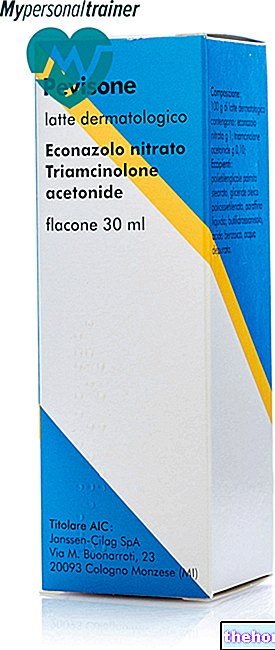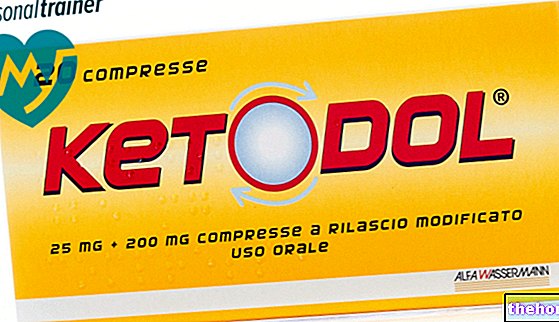Active ingredients: Alfuzosin (Alfuzosin hydrochloride)
Mittoval 2.5 mg coated tablets
Mittoval package inserts are available for pack sizes:- Mittoval 2.5 mg coated tablets
- Mittoval 10 mg prolonged-release tablets
Why is Mittoval used? What is it for?
Mittoval contains alfusozine hydrochloride which belongs to a class of medicines called "Selective alpha 1-adrenergic receptor antagonists or alpha 1-blockers". It acts on the bladder, on the urethra (tube that allows urine to escape) and on the prostate.
Mittoval is used to treat disorders caused by an enlarged prostate, a condition called 'benign prostatic hypertrophy'.
Contraindications When Mittoval should not be used
Do not take Mittoval
- If you are allergic to alfuzosin or any of the other ingredients of this medicine (listed in section 6);
- If you have or have suffered from sudden drops in blood pressure when standing up quickly after sitting or lying down (orthostatic hypotension);
- If you are taking other medicines of the alpha 1-antagonist group;
- If you have severe liver problems (severe liver failure)
Precautions for use What you need to know before taking Mittoval
Talk to your doctor or pharmacist before taking Mittoval.
If you are taking medicines to treat high blood pressure (antihypertensives) or for chest pain (nitrates) your doctor will prescribe Mittoval with caution.
A few hours after taking Mittoval, sudden drops in blood pressure may occur when you quickly switch from sitting or lying down to standing (orthostatic hypotension), with or without disturbances (dizziness, fatigue, sweating). happen, you have to lie down until the symptoms have completely disappeared. These effects usually occur at the beginning of therapy and last for a short time and, as a rule, it is not necessary to stop treatment.
If you have heart disease, take medicines to control blood pressure or are elderly, you have an increased risk of having a sharp drop in blood pressure (circulatory collapse) and experiencing side effects. Therefore your doctor will prescribe Mittoval with caution.
If you have had a sharp drop in blood pressure after taking another medicine from the alpha 1-antagonist group or are being treated with antihypertensives or nitrates, your doctor will prescribe Mittoval carefully.
Like all alpha 1-blockers, if you have acute heart failure (a condition in which the heart cannot pump enough blood), your doctor will prescribe Mittoval with caution.
If you are being treated for coronary insufficiency (heart artery disease) and the chest pains reappear or worsen, your doctor will stop your treatment with Mittoval.
If you have a heartbeat defect or are taking medicines that can cause a heartbeat defect (QTc interval prolongation), your doctor will check you before and during Mittoval therapy.
If you are going to have cataract surgery (clouding of the lens) you should tell your eye doctor that you are taking or have been treated with Mittoval or another alpha 1-blocker medicine in the past. This is because Mittoval or another alpha 1-blocker could cause complications during the operation which can be managed if the specialist has been advised prior to surgery.
The tablets should be swallowed whole. You must not crush them, chew them, grind them or reduce them to powder. This can lead to inappropriate release and absorption of the active ingredient and thus to possible undesirable effects.
If you have suffered from disorders of the blood vessels that carry blood to the brain, with or without disorders, Mittoval increases the risk of lack of blood supply to the brain (cerebral ischaemia).
Interactions Which drugs or foods can change the effect of Mittoval
Tell your doctor or pharmacist if you are taking, have recently taken or might take any other medicines.
You should not take Mittoval if you are using other medicines that belong to the group of alpha 1- antagonists (see "Do not take Mittoval"), as there is a risk of increasing the blood pressure lowering effect.
The effects of Mittoval can be affected or affect the following medicines:
- Medicines used to lower blood pressure (antihypertensives) (see "Warnings and precautions").
- Medicines used to treat chest pain (nitrates) (see "Warnings and precautions").
- Medicines used to treat fungal infections (such as ketoconazole, itraconazole) and medicines to treat HIV infection (such as ritonavir) as they increase the concentration of alfuzosin in the blood.
If you are going to have surgery that requires general anesthesia tell your doctor that you are taking Mittoval as this medicine can change your blood pressure.
Warnings It is important to know that:
Pregnancy, breastfeeding and fertility
Not relevant as the use of Mittoval is reserved for men only.
Driving and using machines
Side effects such as dizziness, dizziness and weakness may occur especially at the start of treatment with Mittoval. Please take this into account if you have to drive or use machines.
Mittoval contains lactose
This medicinal product contains lactose. If you have been told by your doctor that you have an intolerance to some sugars, contact your doctor before taking this medicinal product.
Dose, Method and Time of Administration How to use Mittoval: Posology
Always take this medicine exactly as your doctor or pharmacist has told you. If in doubt, consult your doctor or pharmacist.
Adults
The recommended dose is: 1 tablet of Mittoval 2.5 mg 3 times a day (for a total of 7.5 mg a day).
Take the first tablet at bedtime.
Use in the elderly and in patients being treated with medicines to lower blood pressure
The recommended starting dose is: 1 tablet in the morning and 1 tablet in the evening.
Your doctor may increase these doses, but do not exceed 4 tablets of 2.5 mg (10 mg) per day.
Use in patients with kidney disease
If you suffer from kidney disease the recommended starting dose is: 1 tablet of Mittoval 2.5 mg twice a day. The dose can be changed by your doctor.
Use in patients with liver disease
If you suffer from mild to moderate liver disease, the recommended starting dose is: 1 tablet of Mittoval 2.5 mg per day, which can be increased by your doctor to 2 tablets per day.
Use in children and adolescents
Mittoval should not be used in children and adolescents.
If you forget to take Mittoval
Do not take a double dose to make up for a forgotten tablet.
If you have any further questions on the use of this medicine, ask your doctor or pharmacist.
Overdose What to do if you have taken too much Mittoval
If you accidentally swallow / take an overdose of Mittoval, contact your doctor immediately or go to the nearest hospital.
Side Effects What are the side effects of Mittoval
Like all medicines, this medicine can cause side effects, although not everybody gets them.
The following side effects may occur at the following frequency:
Common (may affect up to 1 in 10 people):
- Weakness or tiredness (asthenia).
- Feeling bad (malaise).
- Nausea.
- Pain in the abdomen.
- Diarrhea.
- Dry mouth.
- Fainting.
- Lightheadedness (dizziness and vertigo).
- Headache.
- Low blood pressure when standing up quickly after sitting or lying down (orthostatic hypotension).
Uncommon (may affect up to 1 in 100 people):
- Increased heart rate (tachycardia).
- Irregular or strong heartbeat (palpitations).
- Visual disturbances.
- Swelling (edema).
- Chest pain.
- Drowsiness.
- Loss of consciousness (syncope).
- Colds (rhinitis).
- Redness of the skin (rash).
- Itching.
- Facial redness (flushing).
Very rare (may affect up to 1 in 10,000 people):
- Chest pain which may spread to the arms, neck or jaw (angina). This happens if you already have problems with the blood vessels that carry blood to the heart (coronary heart disease).
- Urticaria.
- Swelling of the face, throat, limbs, with possible difficulty in breathing (angioedema).
Frequency not known (frequency cannot be estimated from the available data):
- Changes in the heartbeat (atrial fibrillation).
- Iris (the colored part of the eye) that becomes flexible during eye surgery (flag iris syndrome).
- He retched.
- Liver damage (hepatocellular lesions).
- Interruption or suppression of the flow of bile (cholestatic liver disease).
- Decreased or interrupted blood supply to the brain (cerebral ischaemia) in patients with disorders of the blood vessels that carry blood to the brain.
- Persistent and painful erection (priapism).
- Noticeable drop in blood pressure with various disorders up to loss of consciousness (circulatory collapse).
- Reduction in the number of white blood cells (neutropenia).
- Reduction in the number of blood platelets (thrombocytopenia).
Compliance with the instructions contained in the package leaflet reduces the risk of undesirable effects.
Reporting of side effects
If you get any side effects, talk to your doctor or pharmacist. This includes any possible side effects not listed in this leaflet. You can also report side effects directly via the national reporting system at www.agenziafarmaco.gov.it/it/responsabili. By reporting side effects you can help provide more information on the safety of this medicine.
Expiry and Retention
Store below 25 ° C.
Keep this medicine out of the sight and reach of children.
Do not use this medicine after the expiry date which is stated on the carton and blister after "EXP". The expiry date refers to the last day of that month.
Do not throw any medicines via wastewater or household waste. Ask your pharmacist how to throw away medicines you no longer use. This will help protect the environment.
Deadline "> Other information
What Mittoval contains
- The active ingredient is alfuzosin hydrochloride. Each tablet contains 2.5 mg of alfusozine hydrochloride.
- The other ingredients are: tablet core: lactose, microcrystalline cellulose, povidone, sodium carboxymethyl starch, magnesium stearate. coating: hypromellose, macrogol 400, titanium dioxide (E171).
Description of what Mittoval looks like and contents of the pack
Mittoval comes in the form of coated tablets. Packs of 30 tablets in blister packs are available.
Source Package Leaflet: AIFA (Italian Medicines Agency). Content published in January 2016. The information present may not be up-to-date.
To have access to the most up-to-date version, it is advisable to access the AIFA (Italian Medicines Agency) website. Disclaimer and useful information.




























